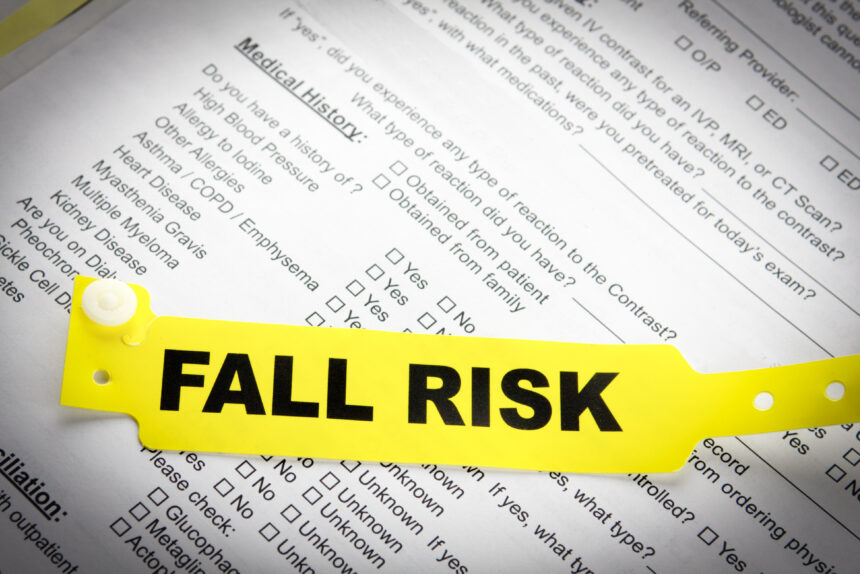Dementia Fall Risk Can Be Fun For Anyone
Dementia Fall Risk Can Be Fun For Anyone
Blog Article
Everything about Dementia Fall Risk
Table of ContentsMore About Dementia Fall RiskHow Dementia Fall Risk can Save You Time, Stress, and Money.About Dementia Fall RiskDementia Fall Risk for DummiesDementia Fall Risk for Dummies
You may be anxious due to the fact that you've had a loss prior to or due to the fact that you've discovered you're beginning to feel unstable on your feet. You could have noticed adjustments to your health, or simply feel like you're reducing down a little. Whatever the factor, it isn't unusual to come to be cautious and lose self-confidence, and this can stop you doing the things you used to do and make you really feel much more isolated.If you have actually had an autumn or you've started to really feel unstable, inform your medical professional also if you really feel great or else. Your physician can inspect your balance and the method you walk to see if renovations can be made. They may be able to refer you for a falls danger evaluation or to the falls prevention service.
This info can be acquired via meetings with the person, their caretakers, and a testimonial of their clinical records. Begin by asking the individual concerning their history of falls, including the frequency and conditions of any kind of current drops. Dementia Fall Risk. Inquire regarding any mobility issues they may experience, such as unstable or problem walking
Conduct a detailed testimonial of the person's medications, paying particular focus to those recognized to boost the risk of drops, such as sedatives or medications that reduced high blood pressure. Establish if they are taking several medications or if there have been recent adjustments in their medication program. Assess the individual's home setting for prospective risks that can enhance the threat of falls, such as bad lights, loose carpets, or lack of grab bars in the washroom.
The Ultimate Guide To Dementia Fall Risk
Guide the person with the autumn danger evaluation type, clarifying each inquiry and recording their responses accurately. Calculate the complete risk score based on the responses provided in the evaluation kind.
This strategy might consist of workout programs to improve strength and equilibrium, medication adjustments, home adjustments, and recommendations to other specialists as needed. Consistently keep an eye on the person's progress and reassess their risk of falls as needed. Modify the care plan based on modifications in their wellness status or home atmosphere. Give ongoing education why not try this out and assistance to promote safety and reduce the risk of falls in their day-to-day living tasks.
Numerous studies have actually shown that physical therapy can help to lower the risk of dropping in adults ages 65 and older. In a new study (that took a look at drops danger in ladies ages 80 and older), scientists calculated the economic influence of choosing physical therapy to stop drops, and they found that doing so conserves $2,144, including all the surprise costs of your time, pain, missed life occasions, and the bucks spent for services.
The Basic Principles Of Dementia Fall Risk
Examining your heart rate and high blood pressure dimensions at rest and while you change positions (from sitting or existing to standing). A basic test of your reasoning (cognitive) abilities. Examining your equilibrium, strength, and strolling capability. A basic vision examination. Evaluating your feet and footwear. A home safety evaluation. Based on the analysis results, your physical specialist will certainly make a strategy that is customized to your particular demands.
Older grownups who have problem strolling and speaking at the same time go to a higher threat of dropping. Dementia Fall Risk. To help boost your safety throughout everyday tasks, your physical specialist may make a training program that will certainly test you to keep standing and strolling while you do another task. Examples include strolling or standing while counting backward, having a conversation, or lugging a bag of grocery stores
Your physiotherapist likewise can identify which activities you should stay clear of to remain risk-free. Community-based falls prevention programs help people to: Minimize their anxiety of dropping. Establish objectives for increasing their exercise. Make their homes safer. Exercise much more to enhance their toughness and equilibrium. These programs frequently are led by volunteer trainers.
Some Known Facts About Dementia Fall Risk.

Measles, or rubeola, is an extremely infectious, acute viral infectious condition brought on by the from this source measles infection. Some individuals believe of measles as just a rash and high temperature that improves in a few days; nonetheless, measles can trigger serious health complications, specifically in children younger than 5-years-old. The most effective defense against measles is the measles, mumps, and rubella (MMR) vaccine.
Loss are an usual cause of injury amongst older adults.
The Basic Principles Of Dementia Fall Risk

She has no background of drops, her stride is stable, and she voids with no problems. The previous nurse states that she calls for help to the restroom when she requires to go.
Examples of typical loss interventions/measures consist of: Guaranteeing a patient's crucial items are available. Putting the patient's bed rails up with the alarm on. Aiding an individual while they're standing up from bed. Beyond recognizing how to make use of the Johns Hopkins Fall Danger Assessment Tool, it is very important that centers incorporate its usage into an extra thorough loss avoidance strategy.
Report this page